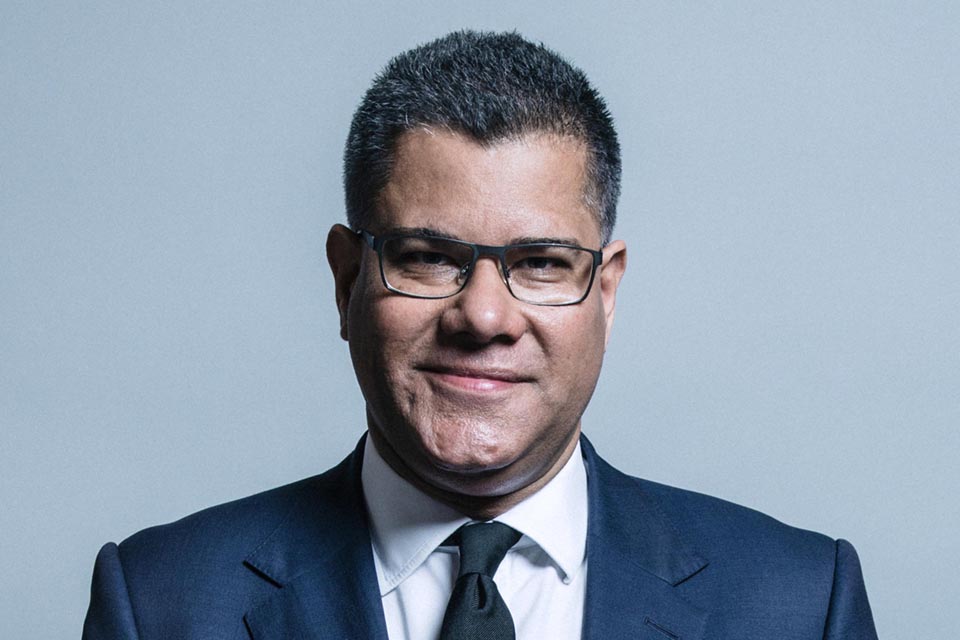Climate Adaptation for Resilience
COP26 President Alok Sharma at the closing session of the Climate Adaptation Summit, hosted by the Netherlands and the World Economic Forum

A huge thank you to the World Economic Forum and the Netherlands for organising this panel. And to my fellow panel members for their brilliant insight.
2021 is indeed going to be a critical year for the climate.
And I want to see the golden thread of climate action woven through every international event on the road to Glasgow.
At the Climate Ambition Summit, which the UK co-hosted with the UN and France last December, we had 75 world leaders come forward to make concrete commitments.
I set out four key priorities of COP26.
First, to secure a step change in emissions reductions which we all want to see.
Second, to strengthen adaptation, protecting people and nature.
Third, to get finance flowing to climate action.
Both public and private finance.
And fourth, to enhance international cooperation on this issue.
Among policy makers, investors, business and civil society.
Today, I want to focus on the last three of these priorities.
And how they work together.
The reality is the effects of climate change are already with us.
So it is vital that we go further and faster on adaptation.
We need to build resilience into our societies and economies.
That requires action from us all: governments, cities, investors, business, and civil society.
The human and economic case is absolutely overwhelming.
We know that the most vulnerable are at the greatest risk from climate change.
Those that have done the least to cause it.
Time and again we have seen the devastation and human misery wracked by storms, droughts and rising sea levels.
We know that without sufficient action, millions will lose their lives and livelihoods.
And many millions will be pushed very sadly into poverty.
We’ve heard from the Global Centre for Adaptation, that every dollar spent on adaptation, yields between two and ten times that in avoided costs and damages. So as COP26 President, I am calling on leaders in all sectors to up their ambition and action on adaptation.
I am urging countries to come forward with ambitious adaptation plans and communications.
As the UK did last month.
I am encouraging governments to align their recovery packages with the Paris Agreement, and the Sustainable Development Goals.
And, I am asking business, cities, civil society and more to join the Race to Resilience campaign, which we launched yesterday to increase ambition on resilience across society.
The UK is also helping to find practical solutions on adaptation.
Launching the Adaptation Research Alliance last week, to do just that.
And proudly supporting LIFE-AR.
A programme led by the least developed countries to aid their adaptation.
Because we are committed to adaptation being locally led.
And to making progress faster through international collaboration.
That is why, yesterday, Prime Minister Boris Johnson launched the Adaptation Action Coalition.
With our partners, Egypt, Bangladesh, Malawi, St Lucia, the UN, and the Netherlands.
Critically, we are also working with donors, development banks, and private investors to get adaptation and resilience finance flowing faster and stronger, particularly to developing countries.
With organisations like the Coalition for Climate Resilient Investment, for example, and through that we are encouraging investors to take climate risk into account in every decision.
Last year we launched an initiative to accelerate investment in adaptation and resilience through Development Finance Institutions – which I urge other DFIs to join.
I am also urging donors to significantly increase international climate finance commitments and ensure a balance between adaptation and mitigation.
We need to ensure that not only must donor countries honour that totemic USD 100 billion pledge.
But adaptation should no longer be regarded as the poor cousin to mitigation when it comes to finance flows.
I believe, if we get finance moving.
If we work together.
And if we have the ambition and support to act.
We can increase the scale and the pace of our adaptation.
And by that we will protect our people, our natural environment, and our economies.
Thank you.